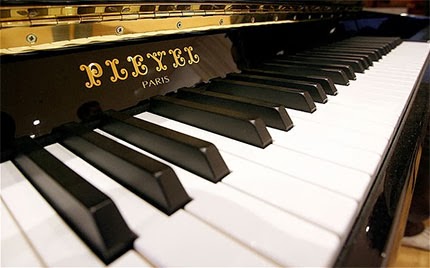Reactions From the Musical World
Pianists from all countries have noted that, despite the bargain-basement prices, Asian piano makers have improved the quality of their instruments over the last few years. Realizing this, the head of the musical conservatoire in Paris, Françoise Levéchin, was nevertheless stupefied by the development. She stated: “It’s unthinkable that it can’t be supported, that this very old house which is a great French maker and is part of piano history cannot be saved.” In a cruel twist, the Pleyel factory succumbed to business pressures on the eve of a 380-million euro bailout plan from the French government designed to prevent closures of this type.
French Job Losses Make it Tough All Over
In addition to the 14 employees of Pleyel’s Saint-Denis factory, tens of thousands of other French workers stand to lose their jobs in the coming months. Industrial Recovery Minister Arnaud Montebourg hopes the bailout package will keep struggling companies viable and on the path to prosperity. It’s a shame that the bailout came too late to save Pleyel.
Strategies to Adopt to the New Global Piano Market
The company is looking, however, for alternative options. Roques hopes to collaborate with a prominent musician or find a smaller space to produce a few high-end pianos annually. The head of competing piano manufacturer Colmann-France Pianos, Oliver Colin, says Roques has missed the bus and has no hope. Colin’s company (on the market since 2004) has expanded its production into China and avoided the higher costs of European workers and their living wages. Colin claims to have used China intelligently and kept French traditions alive. He is banking on new technologies, such as grand pianos that play themselves or pianos outfitted with headphones that will be silent when the headphones are plugged in, in order to survive in the cutthroat world of piano making.
Interestingly, in the face of Asian competition, whose mass-produced, middle-of-the-road pianos are of increasing quality, piano makers all over Europe, including L. Bösendorfer Klavierfabrik GmbH, say they must shift into the high-end market to survive. Given what has happened to Pleyel, this seems to be a risky strategy.
From Pianostreet

Leave a Reply